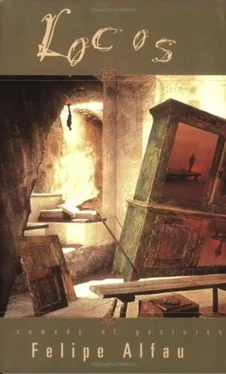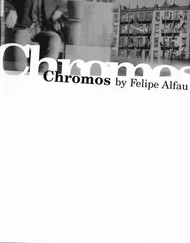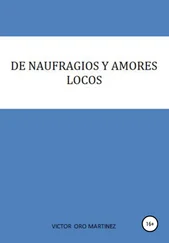The origin of his life is obscure. Neither he nor anybody else has been able to enlighten me as to who his father and mother were. There are vague memories of one day when as an infant he arrived at a house in front of which people were gathered. When he entered he saw a dead woman lying on the floor. Then someone came in and took him away.
After that there is the memory of riding for a day and a night and then another day upon marshy land and seeing rice fields and men and women toiling in them, and snowy mountains in the distance. All this accompanied by the proximity of a gentleman with a thick beard and smelling strongly of tobacco. Then comes a recollection of waking up in a bed and the man with the beard coming into the room and leading him into another larger chamber, where there were more men with thick beards, also smelling strongly of tobacco. After that he ate rice with milk and remembers the taste of chocolate for the first time in his life. He was led into a garden and saw other children playing.
All his recollections of that time are confused. He does not remember whether it was that afternoon, or some days after, when he was in a large hall with colored glass windows, at the end of which there was a large stand covered with white material. There stood figures of men and women dressed mainly in red and blue robes with gilded rings about their heads and many candles which a bearded man was lighting.
Then he found himself held over a marble basin while water was poured over his head. There was speaking in a monotonous voice, and soft music coming from above. From that day he was called Juan Chinelato.
He remained some time among these people and found himself speaking Spanish. They taught him the catechism and mathematics and geography, and thus he found out that this place belonged to a larger place known as the Chinese Empire. These people taught him also to help with the Mass and he was able to say several sentences in Latin. He learned to swing the incensory and steal now and then a drink or two from the holy wine decanter.
Twice every month he was taken into a dark booth, where he met the same thick beard and strong smell of tobacco, and he was asked the same questions, which he always answered as best he could. He was told to recite such and such prayers. Invariably the next day before breakfast he was led in a row with other children to the end of the hall, where the many candles were, and another thick beard smelling of tobacco gave them a tasteless wafer to swallow.
Then one night, when he must have been about ten years old, there was great confusion all over the place. Voices were heard and also the noise made by gunshots. He and other children got out of bed half asleep and wandered into the corridors. There they beheld much disorder. The monks were going to and fro with guns in their hands. They leaned against the windows and shot into the darkness. Juan Chinelato was not afraid, he was just curious. While the other children cringed in a corner, he walked boldly down the stairs and found the main hall barricaded and more monks with guns at the windows.
Then he heard outside voices, strange voices in the night that brought back memories of another night and a huge house whose front was illuminated red by the glow of a bonfire, and then a white man fighting Chinamen in that red light and a woman screaming inside the house. These memories swept him with irresistible force, awaking in him an unknown self of wild and heroic deeds, which he had often imagined in his sleepless nights. Something stirred within him that drew him to a window and he looked outside and heard the voices more clearly and detonations in the darkness. Something crashed against the window and everything went black.
When he woke up he was riding at breakneck speed upon a horse, held tightly between two strong arms. He felt dizzy and as he lifted his head his cheek came in contact with a thick beard and his nostrils perceived the well-known odor of tobacco. Then a voice said:
“How does your head feel?”
He looked up and saw the same monk who had taken him on his first ride some years ago. He went on to explain that there had been an uprising of Chinese bandits who had attacked the mission, killed almost everyone and set the building on fire. Juan had been wounded and the monk had succeeded in taking a horse and escaping with him through the Chinese lines.
Juan put a hand to his head and felt a bandage. The night was now clear, almost dazzling, and there was an enormous moon like those painted on Chinese screens. Again Juan saw the marshy land and rice fields, vast silver plains, and in the distance he also saw the snowy mountains against the sky. And he remembers riding like wind in the night and then going back to sleep.
That dazzling night of adventure formed the background of his life.
Adventure
Around the age of sixteen or eighteen the strength of Juan Chinelato must have been already quite worthy of notice.
He is known to have been rowing on some kind of convict ship where the convicts were chained to the benches.
Juan Chinelato was talking to the man rowing in front of him when the guard approached.
“You horrible monkey,” he yelled. “I will teach you to keep your mouth shut and attend to your job.” And he gave him a terrible blow with his whip upon the naked back.
This was the first time that Juan Chinelato had been so brutally insulted in public and he flattered himself that no man had done so with impunity in his life. His cold eyes flashed like two burning coals. He let go the oar and with a single pull both the chain and bench were torn and broken. Then he turned upon the frightened guard, who had no time to call for help, and with one blow of the thick chain he brought him down dead, his head split open like a melon.
All the men about him were silent with awe at the sudden tragedy. Juan Chinelato was lost. Other watchmen were coming armed with guns and knives. There was only one thing to do and Juan Chinelato did it. With a phenomenal leap he went overboard and disappeared under the water, in a sea alive with sharks.
The watchmen shot once or twice just as a matter of formality and then turned around to reestablish order, knowing that soon justice would be done anyway.
But this was one of the many times that justice was not accomplished in the life of Chinelato. An unfailing good luck, combined with his herculean constitution and an infinite reserve of energy, carried him successfully through a life that would have done away with ten ordinary men. He drifted during two consecutive days until he was picked up by a merchant ship that crossed between China and the Philippine Islands and whose skipper, a Spaniard of ill repute, had underhanded dealings in opium and other smuggled goods.
His physical strength must have won him the respect and good will of the new crew and its skipper. After the labors of the day, when supper had been consumed and the sailors sat around to watch the sun set behind the horizon, they would organize wrestling matches in which Juan Chinelato invariably came out the victor.
His popularity and fame as a strong man soon broadened and at every port they touched he met the strongest men from other crews and easily defeated them, until he won the undisputed title of Champion of the China Sea.
During all this time he had gained influence over his captain. At that time he already spoke Spanish, Chinese and several dialects. This, together with his quick intelligence, ready wit and elastic conscience, must have made him appear a priceless asset to the old skipper, who began to consider him his right hand in all sorts of shady dealings.
All that is known of this part of his life is that, together with the captain, he cruised all those seas and islands and that with him he made his first fortune; that one day, after having been gone for some time, he reappeared in Mindanao without the captain, in full command of the ship and with another crew. At the first port he sold both ship and crew and established himself in Manila.
Читать дальше












